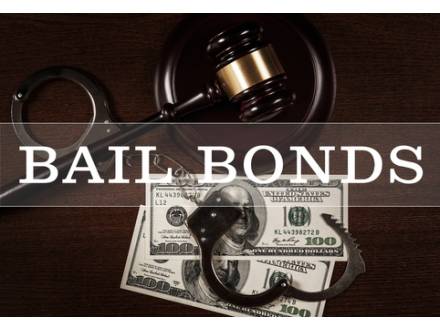What Are Bail Bond Algorithms and Why Do They Matter?
 Most people associate the word "algorithm" with social media sites or Internet search engines. In these situations, an algorithm analyzes a user’s interests and metrics to find the best content niche for each user. For example, Instagram’s algorithm analyzes each user’s searches, showing each user content based on his or her searches and responding to further interest in displayed content. An algorithm, in general, is a process or set of rules that is followed in problem-solving operations or calculations.
Most people associate the word "algorithm" with social media sites or Internet search engines. In these situations, an algorithm analyzes a user’s interests and metrics to find the best content niche for each user. For example, Instagram’s algorithm analyzes each user’s searches, showing each user content based on his or her searches and responding to further interest in displayed content. An algorithm, in general, is a process or set of rules that is followed in problem-solving operations or calculations.
When a judge decides whether an individual charged with a crime should be released on bail and what the bail bond amount should be, specific information is taken into account. This information goes far beyond the charges. While judges almost universally use these algorithms to arrive at a more objective decision, ultimately, the judge has some discretion and can deviate from the algorithm's results.
Bail algorithms are designed to guide judges through a statistical analysis based on several factors. Some of these factors are obvious, while others are less so. If you have been charged with a criminal offense, it is important to speak to an experienced Collin County, TX bail bondsman from Doc's Bail Bonds who has a comprehensive understanding of the metrics and algorithms that will be used to set your bond.
What Are the Factors Used in a Bail Bond Algorithm?
While the individual charges can make some difference in the metrics used to determine bail, usually, the following factors are a part of a bail bond algorithm:
- What is the likelihood of the defendant committing another criminal offense before the date of the trial for the original crime?
- What is the bail investigator’s assessment of the defendant’s overall reputation?
- What do people who know the defendant think about his or her likelihood of showing up for court dates and the trial?
- How old is the defendant?
- Does the defendant currently have a steady job?
- Is the defendant currently on probation or parole?
- Does the defendant have close family members who depend on him or her?
- Is there any history of failure to appear on the part of the defendant?
- What does the defendant’s criminal history look like?
- How serious are the current charges?
- Does the defendant have a history of drug or alcohol abuse?
The answers to these questions can never be 100 percent accurate regarding the bail algorithm; sometimes, people fail to tell the truth, or there are mistakes in a person’s criminal history. The algorithm is, however, usually the best way to arrive at an objective assessment of the defendant’s likelihood of showing up for court or skipping out on bail. Algorithms also tend to eliminate bias and improve consistency.
What Are Some Potential Problems with Bail Algorithms?
In some cases, the factors considered by bail algorithms may be more limited than those a judge might consider. As an example, the algorithm might not factor in a defendant whose loved one is in the hospital with a fatal illness. The judge, on the other hand, might see this as a definite reason the defendant would not miss a court date, as he or she would not want to get very far away from the loved one.
A bail algorithm may place too much weight on the actual charges rather than accounting for the unique facts surrounding the charges. Since defendants with little money are unlikely to be able to make bail, even if the judge allows it, the system remains skewed in favor of more affluent defendants. In the end, the judge must consider not only the results of a bail bond algorithm but also the person standing before them.
Contact a Denton County, TX Bail Bondsman
When you choose Doc's Bail Bonds, you can rest easy, knowing you are dealing with a company that has built a solid reputation over the years and has six locations across Texas. Prior to becoming a bail bondsman, Doc managed a professional baseball team, affording him the skills necessary to build a strong team while understanding the rules of the game. Call 214-747-4110 to speak to a highly experienced, licensed Dallas, TX bail bondsman from Doc's Bail Bonds.










